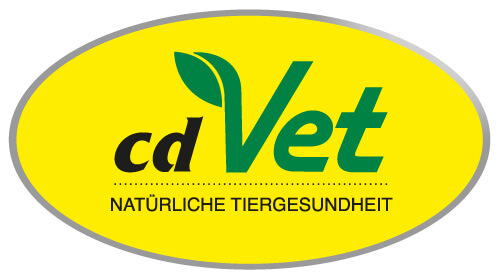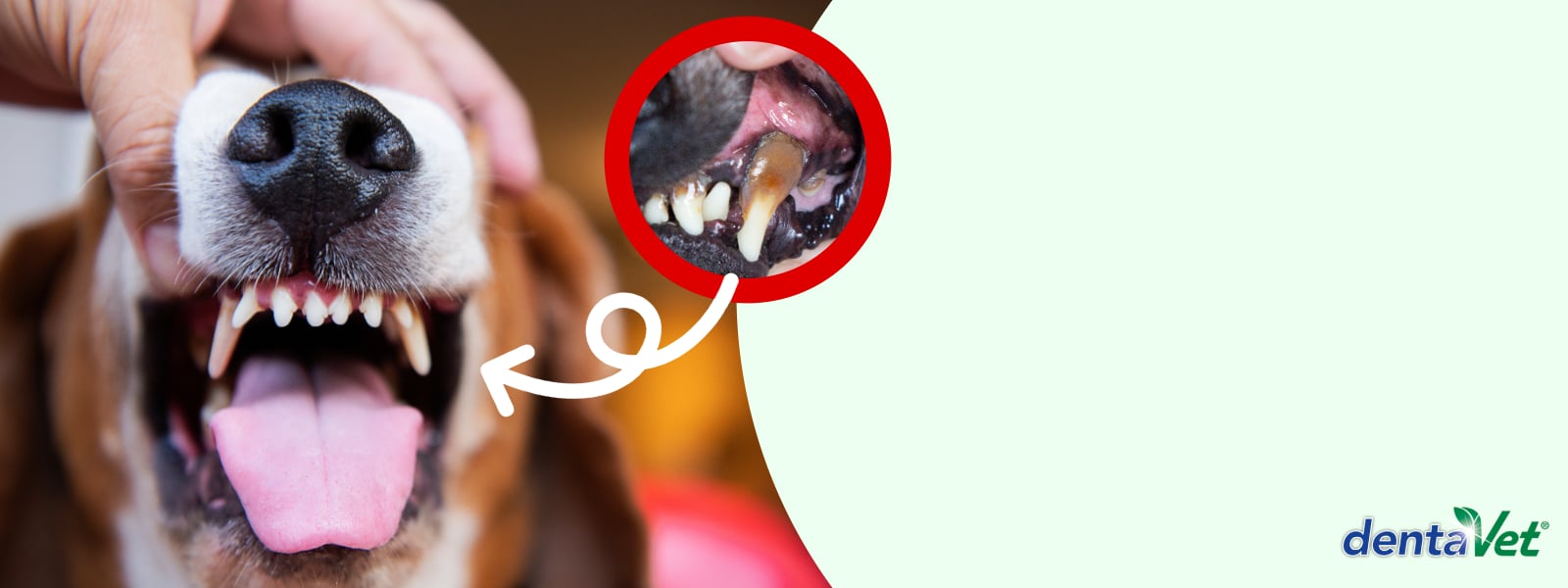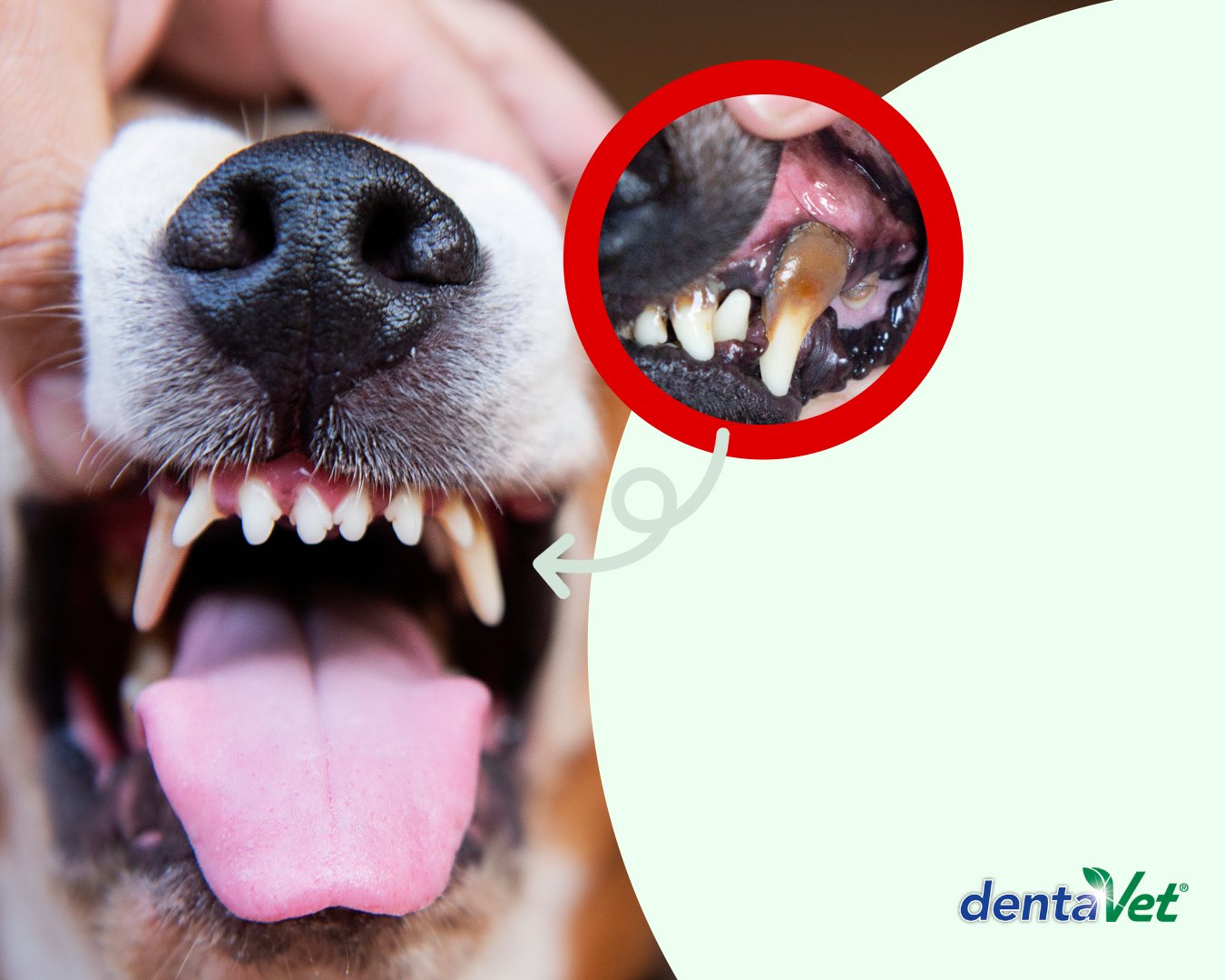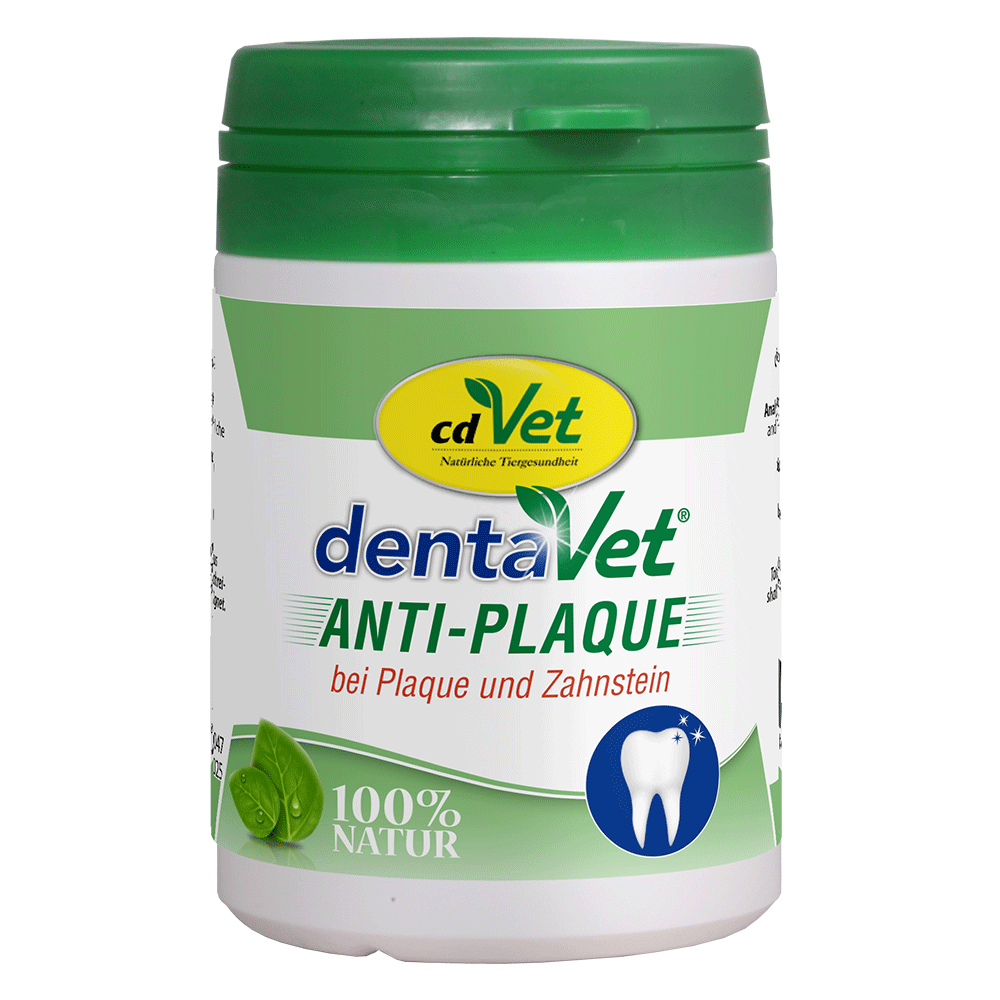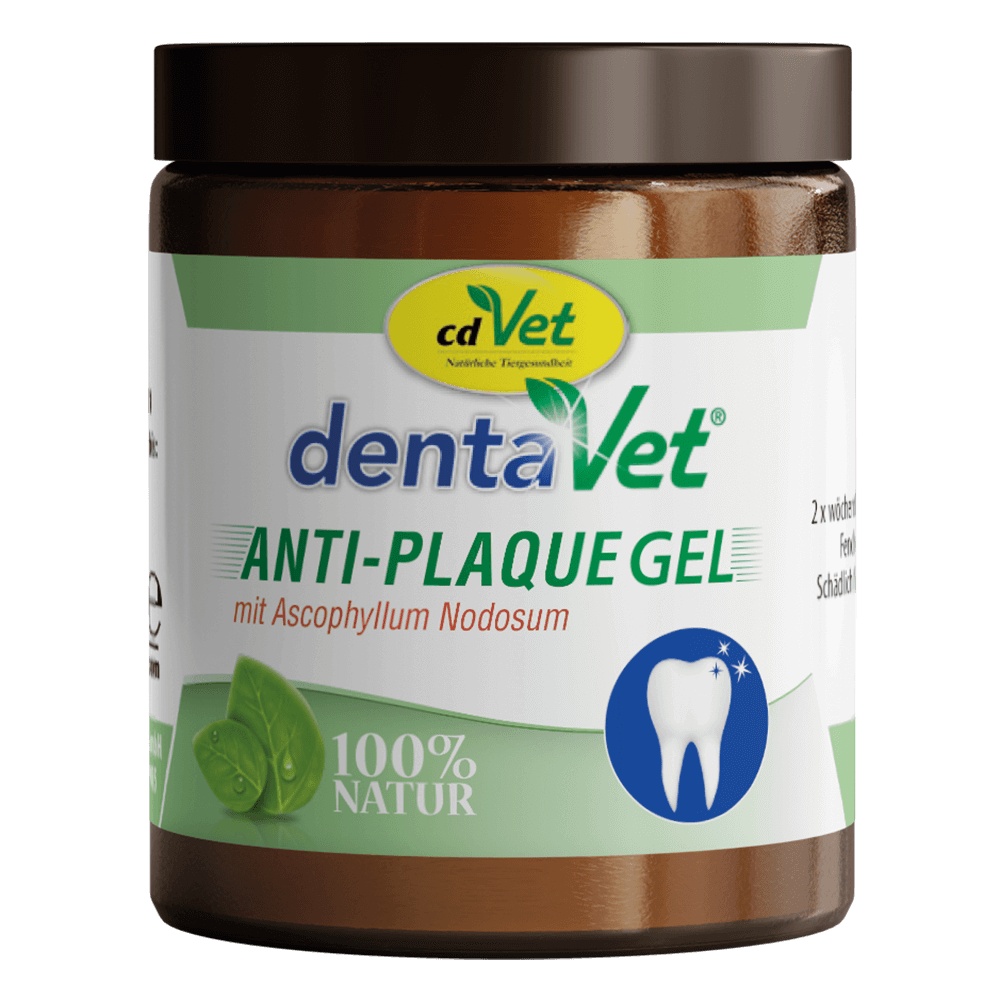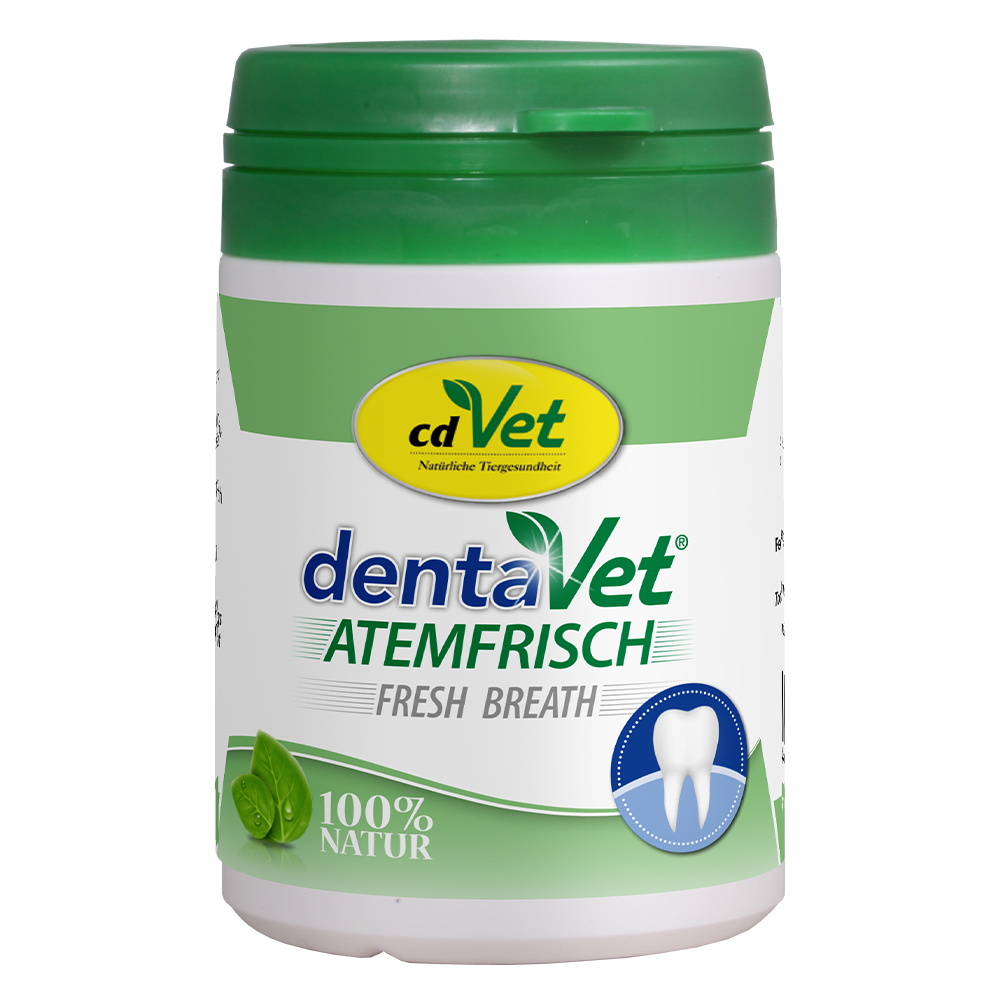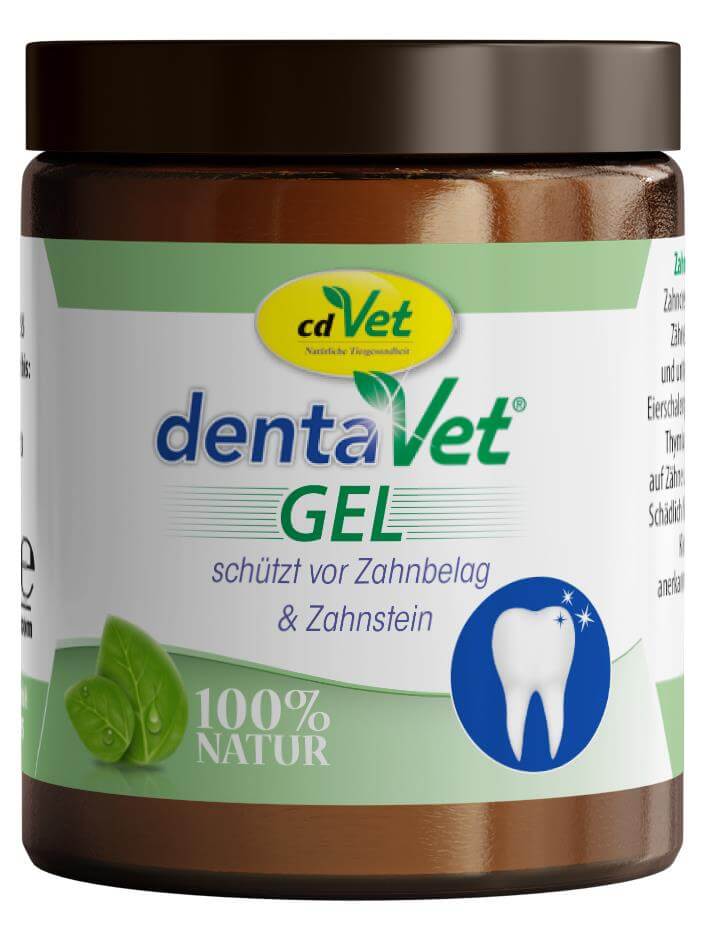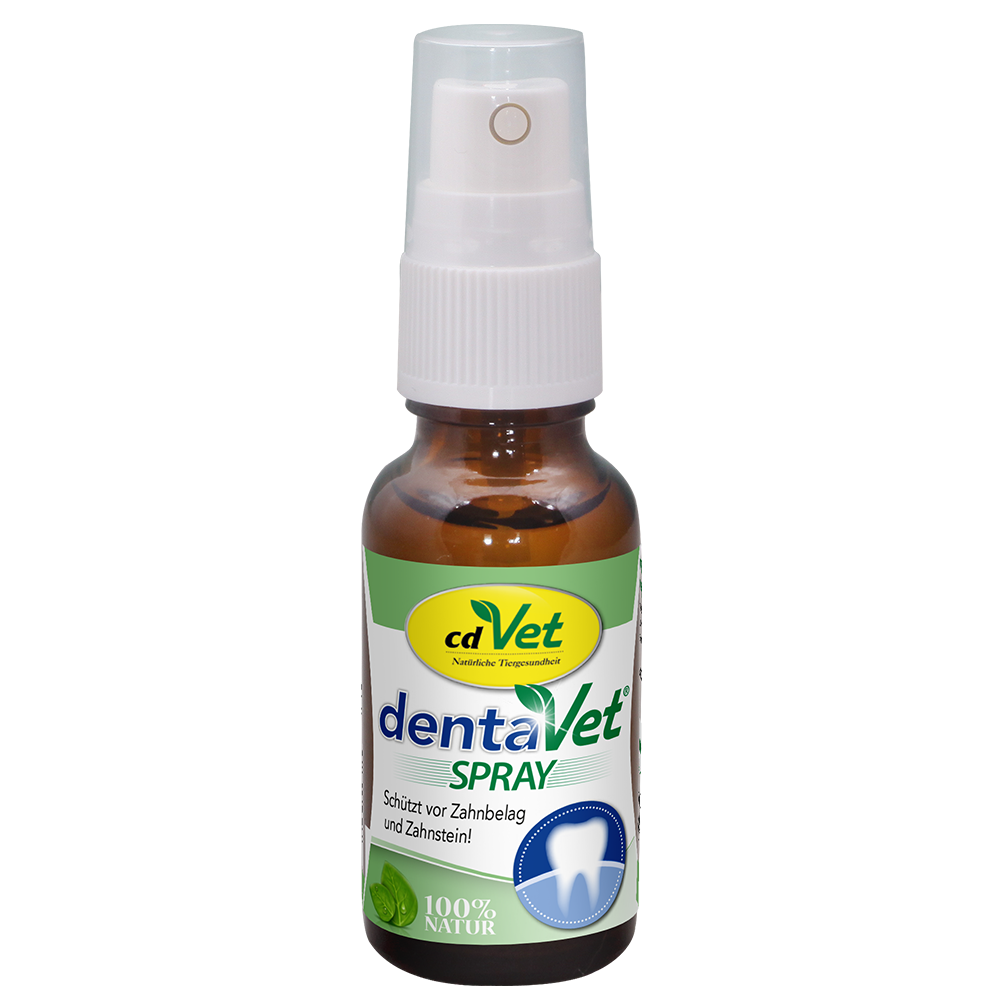Natural Care for Teeth and Gums
A bright white set of teeth, pink gums, and breath without unpleasant odors are, unfortunately, increasingly rare in our pets these days. Especially as our dog or cat gets older, discoloration of teeth and gums often occurs. During every cuddling session, you might find yourself trying not to breathe too deeply to avoid the strong mouth odor of your beloved pet.
Also, in the case of daily grooming of cats, their foul-smelling saliva can sometimes make those who are more sensitive to smells prefer to keep their distance. Here, you can learn what is important for the natural care of teeth and gums.
Understanding the Causes of Bad Breath in Pets
The Role of Bacteria and Fungi
The primary cause of bad breath is usually bacteria and fungi in the animal's mouth. These microorganisms are responsible for plaque formation.
What is Plaque?
Plaque, or dental tartar, is a buildup that contains several layers, including food residues, proteins, carbohydrates, phosphates, and microorganisms. It accumulates on teeth, particularly in areas not reached by natural or artificial cleaning methods.
Consequences of Plaque Buildup
Plaque can lead to dental issues such as caries, periodontitis, and gingivitis. Microorganisms in plaque form a biofilm, producing acids that damage tooth enamel and dentin, leading to caries. Some microorganisms trigger an immune response, causing gum inflammation.
Bad Breath and its Intensification
Some plaque microorganisms produce sulfur compounds, which result in bad breath. This odor intensifies as these microorganisms multiply.
The Formation of Tartar
Over time, plaque absorbs minerals and becomes hard, forming tartar. Tartar provides an additional surface for bacterial colonization, exacerbating dental problems.
Natural ingredients in dentaVet products
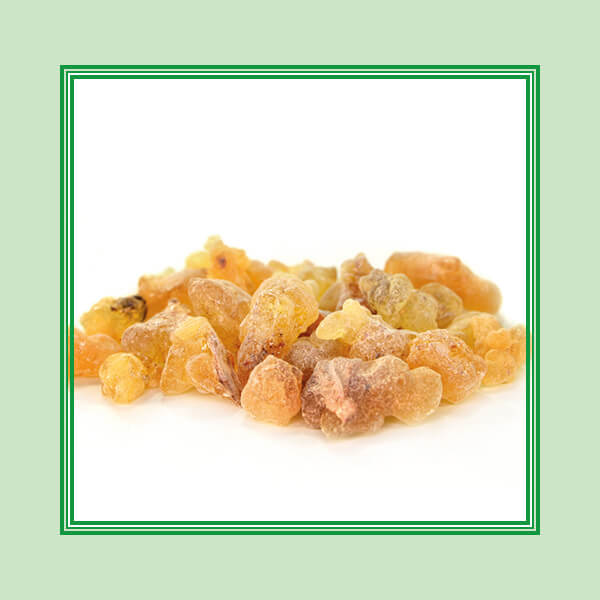
Frankincense
Frankincense has been used for various purposes since ancient times. The first documentation of the use of frankincense for dental care dates back to the thirteenth century. Since then, frankincense has been particularly used for strengthening the gums.
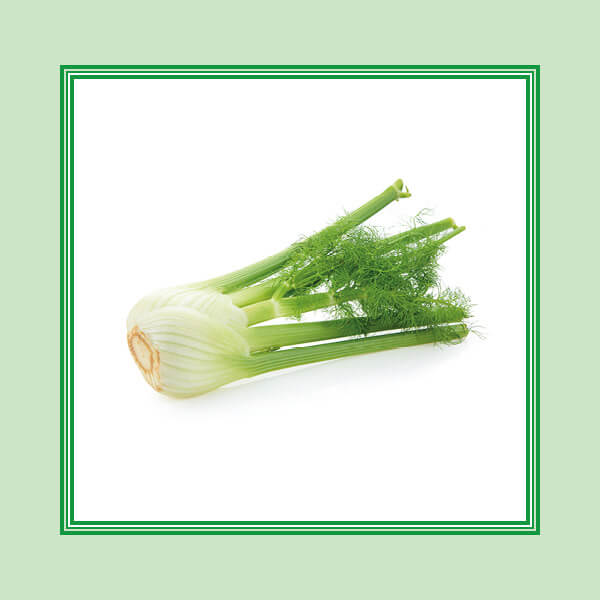
Fennel
In addition to many well-known features, fennel is also recognized for its high content of the essential oils anethole and fenchol. Anethole is traditionally used in human oral care products.
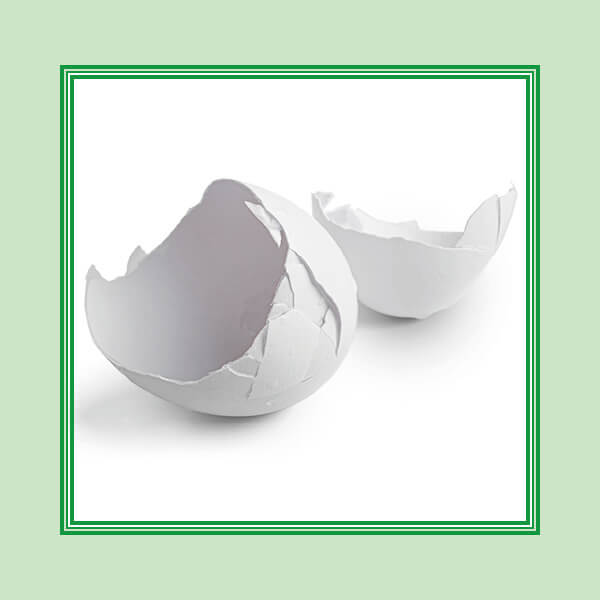
Eggshells
The rougher surface of eggshells provides a gentle abrasion that helps remove dental plaque and discoloration.
How Diet Affects Breath
Diet and Bad Breath
The diet can be a key factor in the development of bad breath. Many commercial pet foods contain synthetic additives, preservatives, attractants, and sugars. Over time, these ingredients can negatively impact the natural oral flora of pets.
Consequences of Dental Issues
When serious dental problems arise, a veterinarian's intervention is often essential. Dental treatments often require anesthesia, which can cause significant stress to the animal's overall health.
Preventive Measures
Regular and sufficient dental hygiene is as crucial in pet care as a species-appropriate diet. To support this, cdVet offers dentaVet Breath Fresh, dentaVet Oil, and dentaVet Gel. These products provide an easy and stress-free way to maintain daily dental care, complementing a healthy diet for optimal oral health.
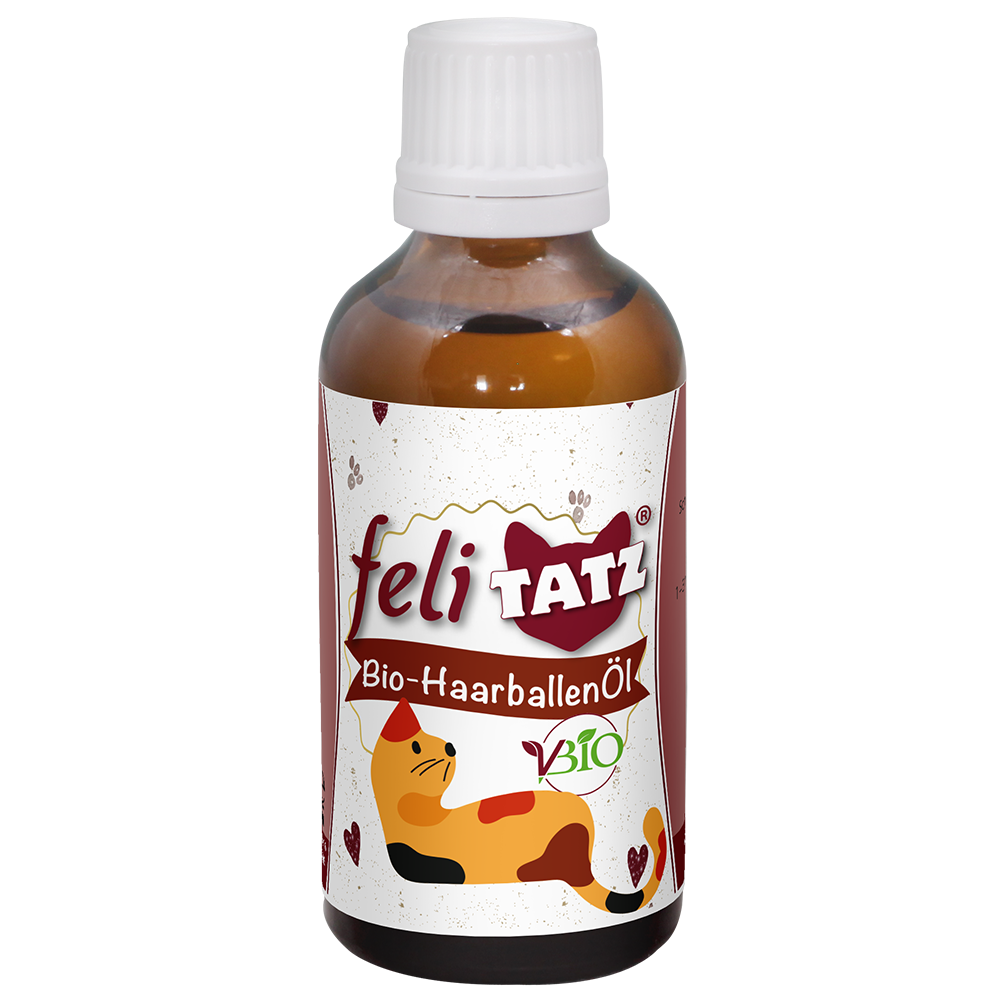
Complementary feed for catsImproved excretion of hairballs, less hair loss, shiny fur, oilHair swallowed during the natural cleaning process can give your cat a hard time. They tickle in the throat, block the stomach or do not quite want to pass through the intestine. With feliTATZ Organic Hairball Oil you offer your cat the opportunity to better channel the swallowed hair through its digestive tract and excrete it.The unique combination of different, cold-pressed oils in organic quality additionally provides your cat with valuable essential fatty acids and can improve the food intake of fussy feeders.Reduction of wheezing and choking feelingSupport in excretion of ingested hairHealthy skin - shiny furReduces hair lossRich in omega-3 and omega-6 fatty acidsGood acceptanceComposition: sunflower oil*, coconut oil*, evening primrose oil*, argan oil*, borage oil*, hemp oil**cold pressed, from controlled organic cultivation. Eco-Control-Center DE-ÖKO-001, EU/non-EU agriculture.Analytical constituents: crude protein 0.1%, crude fat 99.6%, crude fiber 0.1%, crude ash 0.2%How to use: Add daily 10-30 drops to the feed.
Content: 0.05 Liter (€203.20 / 1 Liter)
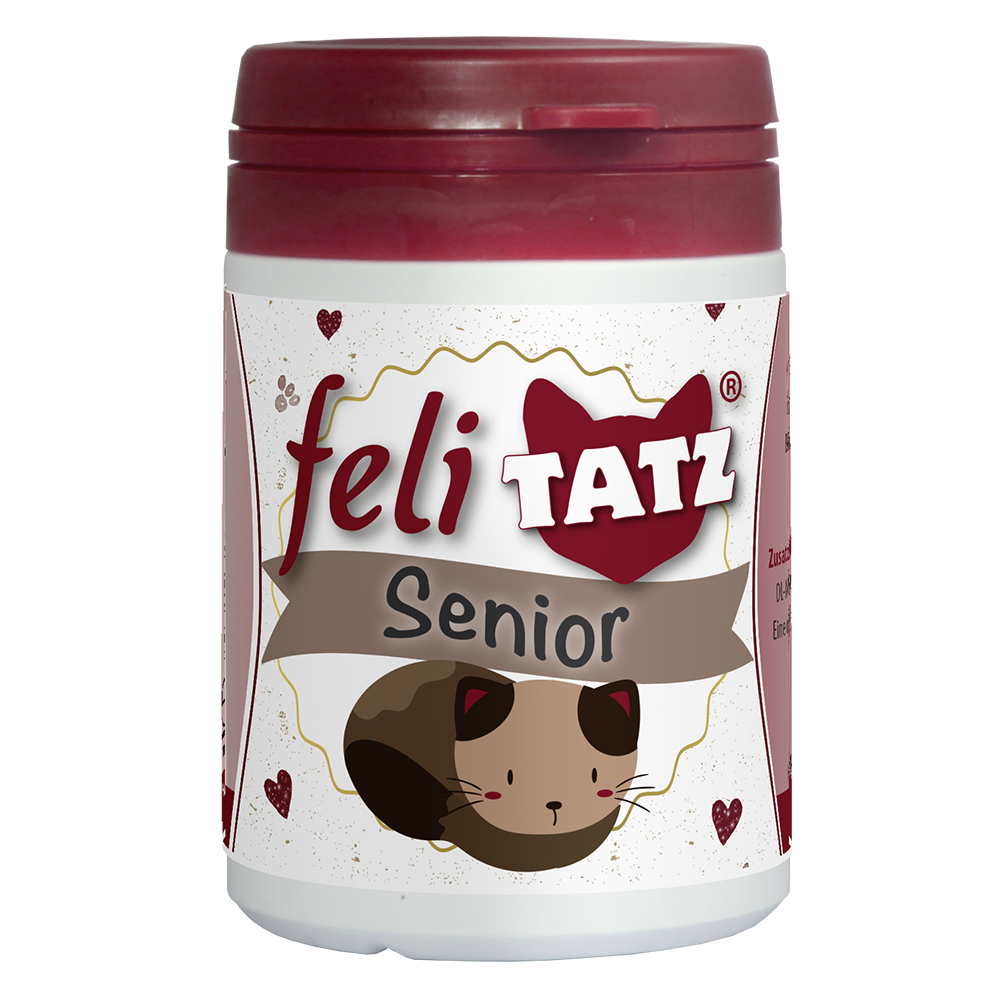
Complementary feed (powder) for catsFor the nutrition-related support at general weakness and in old agefeliTATZ Senior is a natural complementary feed for cats and provides the animal‘s body with precious herbs, vitamin E, selenium, amino acids, electrolytes, essential fatty acids, and iron. feliTATZ Senior is particularly recommended to compensate for nutrition-related deficiencies in cases of general weakness, listlessness, after illness or surgery, after training breaks, in cases of lack of agility, and in older animals.Expert tip: For micronutrient supply, the feeding of feliTATZ MineralForce is additionally advisable.Composition: linseed, brewers‘ grains, hawthorn leaves with blossoms, brewers´ yeast, milk thistle herb, birch leaf, stinging nettle herb (ground), gingko leaves, dandelion herb, ginger, dandelion rootAdditives/kg: Nutritional additives: L-lysine monohydrochloride 102 g, L-methionine (3c305) 55 gAnalytical constituents: crude protein 31.2%, crude fat 15.4%, crude fiber 11.5%, crude ash 5.4%Feeding recommendation: add daily 1 knife point to the feed
Content: 0.025 Kilogramm (€338.40 / 1 Kilogramm)
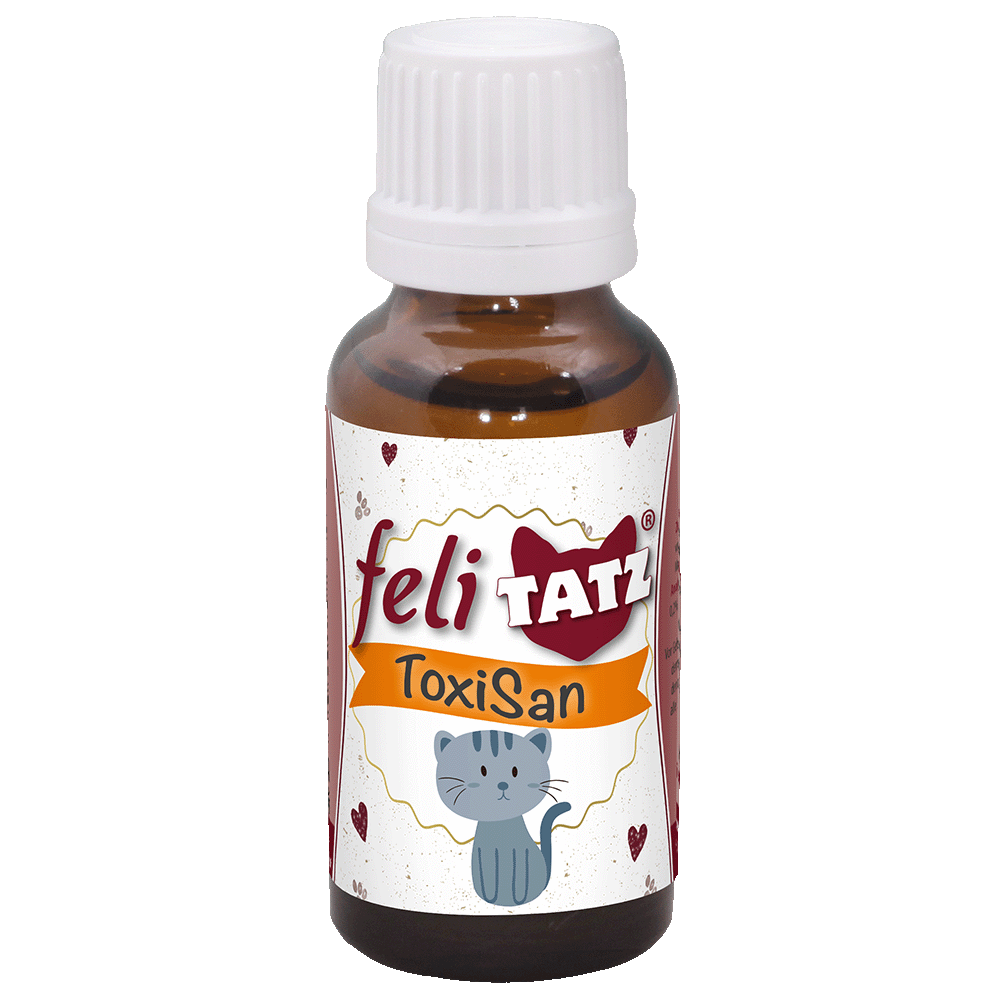
Complementary feed (liquid) for catsFeeding-related, immediate support for liver and kidneysWhen it comes to digestion, the first thing that comes to mind is the stomach and, of course, immediately the intestines. But people often forget to look at the liver and kidneys. In addition to eliminating harmful substances, the liver also regulates fat, protein, and sugar metabolism. And the kidneys also play a decisive role among the digestive organs. They are real specialists when it comes to removing harmful substances from the blood. Drugs, environmental toxins, and other harmful substances are filtered and flushed out of the body. But every now and then, even experts need help and support.Whether strains from medications, vaccinations, worming or toxins: Liver and kidneys can also reach their limits. Often signs can be seen early on, but are not recognized as such:coat and skin problemsallergiesdigestive disorderssusceptibility to recurring ear problemsfoot and body odorfeliTATZ Toxisan provides a variety of herbs that help support the body's own detoxification and cleansing processes of the liver and kidney systems. They stimulate the metabolism of the animal and can thus optimally support the detoxification organs and the entire organism.Composition: ginkgo leaves, stinging nettle (ground), milk thistle herb, goldenrod herb, birch leaves, wild pansy herb, mountain arnica blossoms, marigold blossomsAdditives/kg: Preservatives: lactic acid (1a270) 9.52 g. Flavouring compounds: ethanol (2b02078) 76.26 g.Analytical constituents: crude protein 0.5%, crude fat 0.5%, crude fiber 1.7%, crude ash 1.0%, moisture 93%Feeding recommendation: Shake before use. Add 0.5 ml/5 kg body weight to the feed daily for at least 8 weeks. Detoxification is a strenuous and individual process for the body, so always start with only 0.2 ml and slowly increase the feeding amount every 3-5 days up to the recommended feeding amount/kg body weight. 10 drops correspond to approx. 0.3 ml.
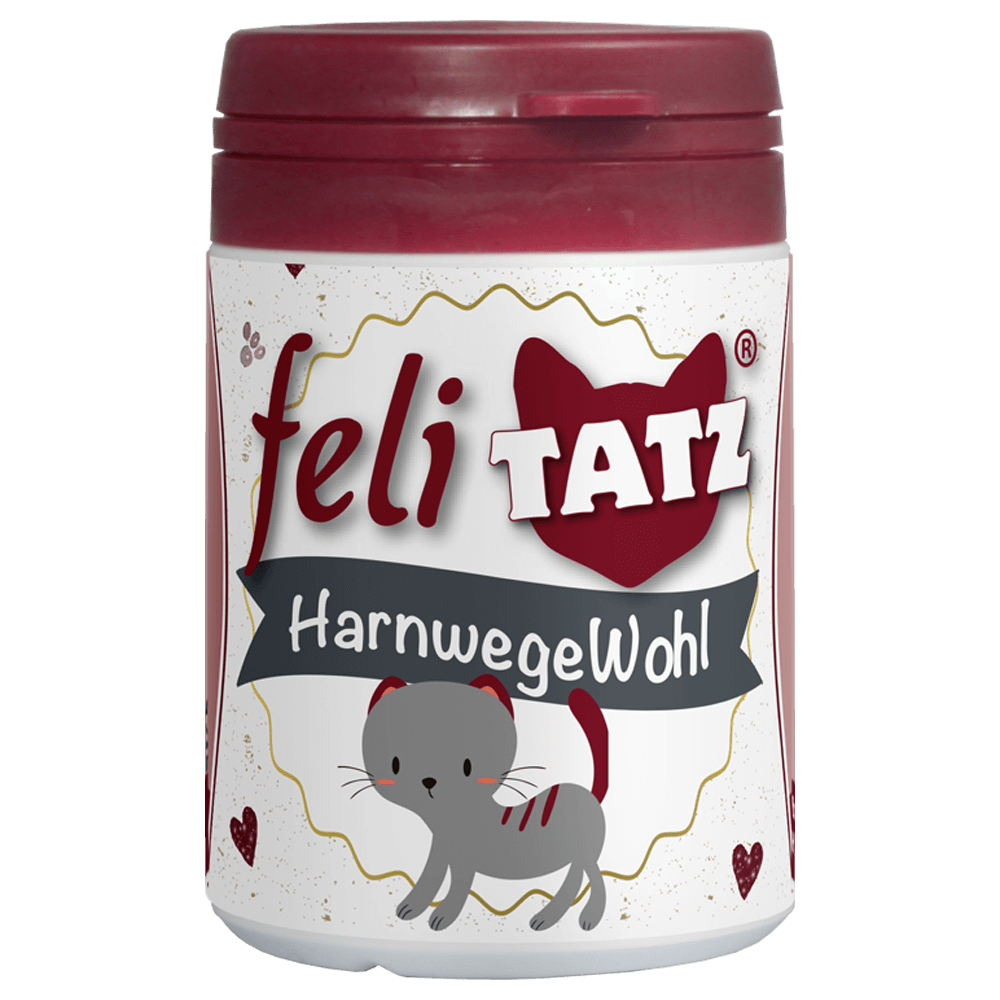
Complementary feed (powder) for catsFor therapy-accompanying feeding in cats prone to urinary tract problemsfeliTATZ Urinary Tract Wellbeing contains a variety of high quality herbs and minerals. Those can contribute to increased fluid intake and have a reinforcing effect on the urge to urinate. Increased fluid intake and excretion supports the self-cleansing of the urine-forming system.high-quality herbs and mineralsalso as therapy-accompanying feedinggood acceptanceComposition: grape pips meal, dead nettle herb, bean pods, blackberry leaves, field horsetail herb, propolis, lemon balm leaves, oak bark, willow bark, ginseng root, bonest herb, grape leaves, chamomile blossomsAdditives/kg: Technological additives: diatomaceous earth (E551c) 75 gAnalytical constituents: crude protein 14.5%, crude fat 1.6%, crude fiber 25.1%, crude ash 18.6%, ash insoluble in HCl 10.0%How to use: feed 1 x daily for 14-30 days 1 pinch/animal
Content: 0.0125 Kilogramm (€1,016.80 / 1 Kilogramm)
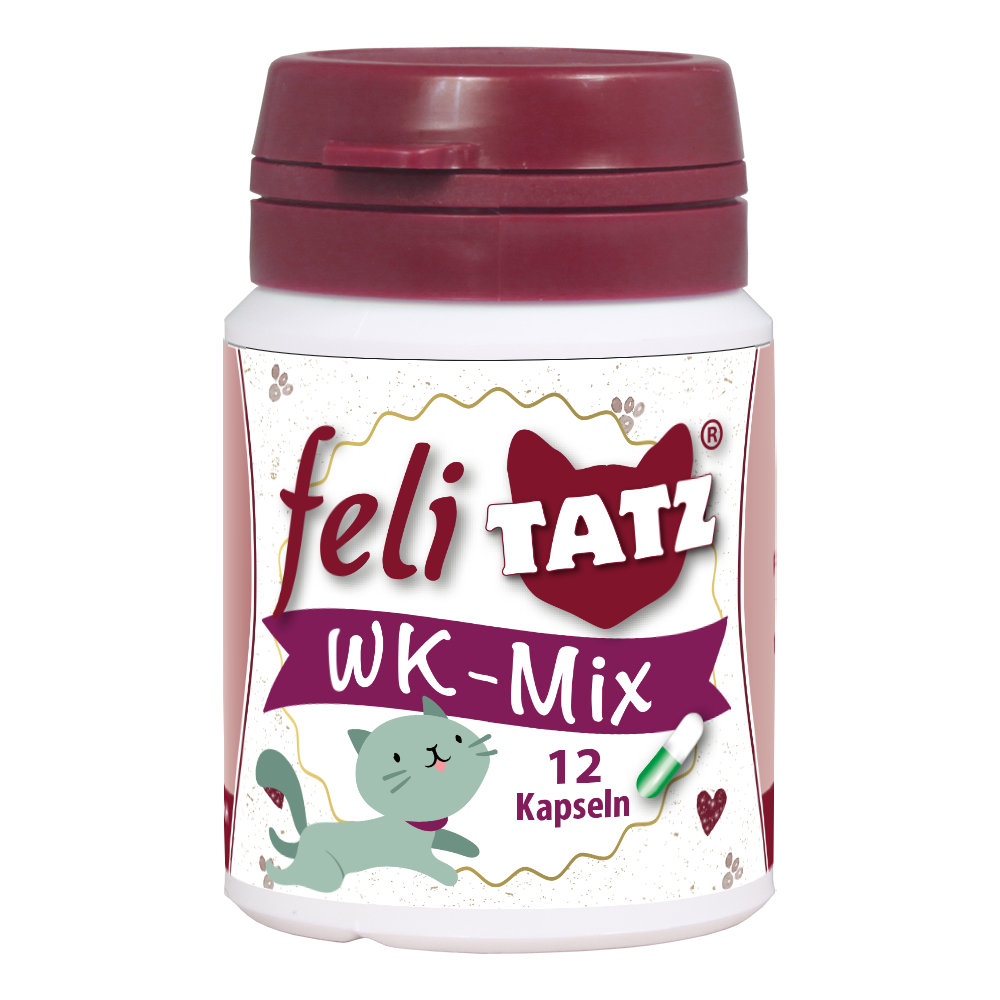
Complementary feed (powder) for catsWild herbs for an intestinal ambience hostile to worms.feliTatz WK-Mix Capsules was developed for the special nutritional needs that arise in connection with colonization by worms. The lack of herbal ingredients, such as saponins, bitter substances, and tannins, can make our pets susceptible to excessive colonization by worms. In contrast to their conspecifics living in the wilderness, they often do not have the opportunity to absorb those substances through plants and herbs. However with their wild relatives, precisely these substances lead to avoid an excessive, pathological colonization by worms.In order to have less often a reason for chemical deworming cures, the animal‘s intestine should therefore be supported with appropriate herbs that are contained in feliTatz WK-Mix Capsules. Besides of a balanced diet, you can achieve this by the occasional addition of the complementary feed feliTatz WK-Mix Capsules, which can compensate for the lack of herbal ingredients, such as saponins, bitter substances and tannins. In addition, many specialists for parasitology recommend checking the colonization by worms of the animal by regularly monitoring the faeces samples.Composition: kamala, peat, southernwood herb, pumpkin seeds, juniper berries, wild garlic leavesAdditives/kg: Technological additives: kieselgur (E551c) 50 g.Analytical constituents: crude protein 6.9%, crude fat 1.5%, crude fiber 8.5%, crude ash 35%, ash insoluble in HCl 30%How to use: Feed 2 capsules/5 kg body weight once. After 10-14 days, feed the same amount again. feliTATZ WK-Mix Capsules should be fed in the morning if possible. Cats should be given free access to the litter tray if they do not have the possibility to go outside. Feeding should be repeated every 3 months. Capsule filling quantity: ca. 0.25 g.
Content: 12 Quantity (€1.20 / 1 Quantity)
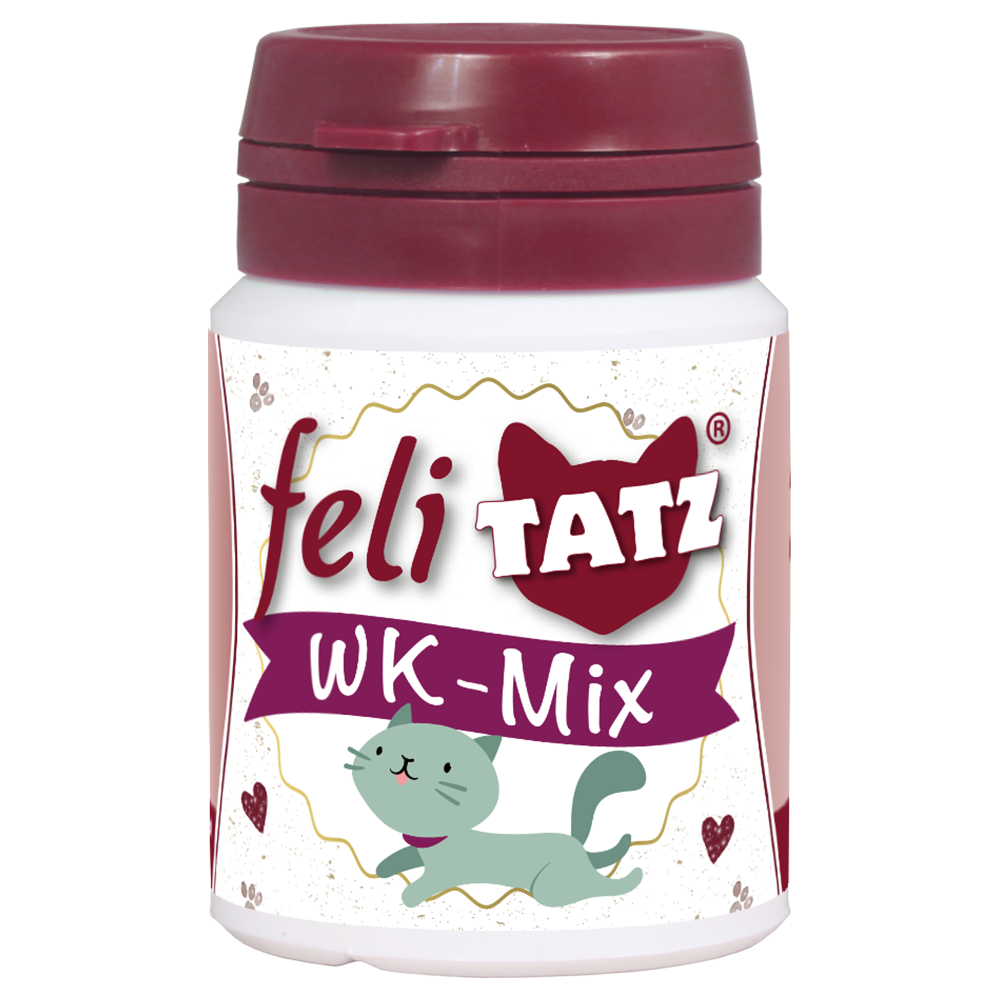
Complementary feed (powder) for catsWild herbs for an intestinal ambience hostile to wormsfeliTATZ WK-Mix has been developed for the special nutritional needs that arise in connection with colonization by worms. The lack of herbal ingredients, such as saponins, bitter substances, and tannins, can make our pets susceptible to excessive colonization by worms. In contrast to their conspecifics living in the wilderness, they often do not have the opportunity to absorb those substances through plants and herbs. However with their wild relatives, precisely these substances lead to avoid an excessive, pathological colonization by worms.In order to have less often a reason for chemical deworming cures, the animal‘s intestine should therefore be supported with appropriate herbs that are contained in feliTATZ WK-Mix. Besides of a balanced diet, you can achieve this by the occasional addition of the complementary feed feliTATZ WK-Mix, which can compensate for the lack of herbal ingredients, such as saponins, bitter substances and tannins. In addition, many specialists for parasitology recommend checking the colonization by worms of the animal by regularly monitoring the faeces samples.Composition: peat, kamala, southernwood herb, pumpkin seeds, juniper berries, wild garlic leavesAdditives/kg: Technological additives: kieselgur (E551c) 100 g.Analytical constituents: crude protein 7.6%, crude fat 1.7%, crude fiber 11.3%, crude ash 35.5%, ash insoluble in HCl 34.5%How to use: Add 1 g/5 kg body weight to the feed once. After 10-14 days, feed the same amount again. cdProtect Cat / feliTATZ WK-Mix should be fed in the morning if possible. Cats should be given free access to the litter tray if they do not have the possibility to go outside. Feeding should be repeated every 3 months. 1 half tsp. corresponds to approx. 1 g.
Content: 0.012 Kilogramm (€917.50 / 1 Kilogramm)
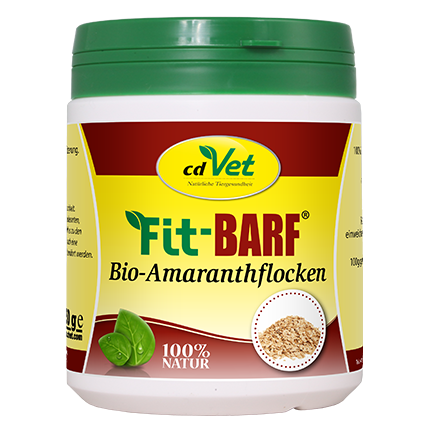
Feed material for dogsTo supplement the daily ration at raw feeding.Amaranth is one of the oldest agricultural crops of humankind.It is not among the sweet grasses, such as normal grain varieties.It is one of the fox tail plants.This makes it to one of the pseudo-cereals.Amaranth is gluten-free and thus an excellent alternative for dogs who are fed grain free.- easily digestible- As an addition to fresh or canned meatComposition: 100% Bio- Amaranth flakes inspection DE-ÖKO-001 EU AgricultureAnalytical constituents: Crude protein 13.5%, crude fiber 2.5%Feeding recommendation: Pour the Fit-Barf Bio- Amaranth flakes with hot water, let it swell for at least 15 minutes and then feed with fresh or canned meat.Up to 10% of the total amount of feed as soaked flake.For soaking, the ratio 1 part flakes and at least 2 parts water is recommended.From 10g dry flake about 30g ready to eat flake.
Content: 0.4 Kilogramm (€23.28 / 1 Kilogramm)
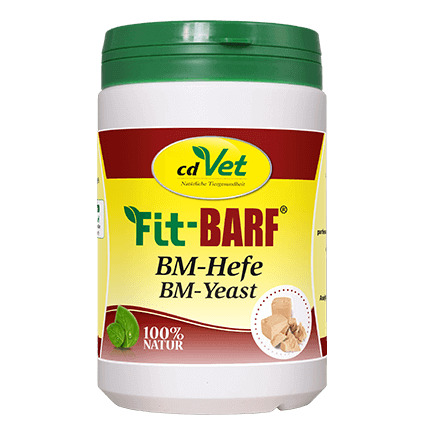
Complementary feed for dogs and cats.For the appropriate supply at raw feedingBM-yeast (brewer´s yeast bounded on malt rootlets) Brewer´s yeast contains biotin, folic acids, ferrous, zinc and trace elements which has a positive influence on the condition and resistence of skin and hair. Also the ability for regeneration of the single cells can be affected diet-related. Malt rootlets distinguish themselves by her content of slightly digestible carbohydrates, crude fiber and crude protein. Through their high content of crude fiber the seedling have a good dietary value.Composition: Malt rootlets, brewer´s yeast.Analytical constituents : Crude protein 30,0%, crude fat 2,0%, crude fiber 9,0%, crude ash 7,0%.Feeding recommendation: Daily cats/small dogs 1 measuring spoon, medium dogs 2 measuring spoons, large dogs 3 measuring spoons. 1 measuring spoon corresponds to about approx. 1,2g.
Content: 0.6 Kilogramm (€15.52 / 1 Kilogramm)
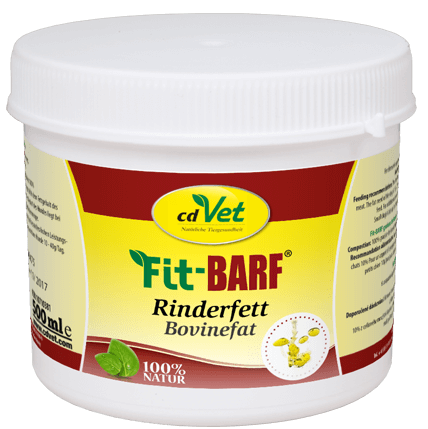
Feed material for dogs and catsFor the appropriate supply at raw feedingThe proportion of animal fat should be 15-25% in the diet of the dog and the cat should be at about 10%. If your dog or cat is fed with lean meat, it uses proteins to produce energy. In this case, wastes will be generated that need to be digested by liver and kidneys. The strain on the metabolism increases. On the long term, this can lead to congestions of the excretory organs. In case of dogs or cats that are poorly using the feed or very underweight, special attention should be paid to the fat content of the meat.Composition: 100% pure bovine fat.Analytical constituents: 100% crude fat.Feeding recommendation: cats 2-5 g, small dogs approx. 10 g, medium-sized dogs approx. 10-40 g, large dogs approx. 40-80 g.Depending on activity and energy needs feeding can be adjusted.If fat is being fed for the first time, please note that the addition must be slowly increased to the desired amount. The cat or dog should be given enough time for this change and should be particularly monitored during this time. Only then you can decide, whether your pet can cope with the amount of fat being fed. It is important to consider each animal as an individual.
Content: 0.5 Liter (€25.42 / 1 Liter)
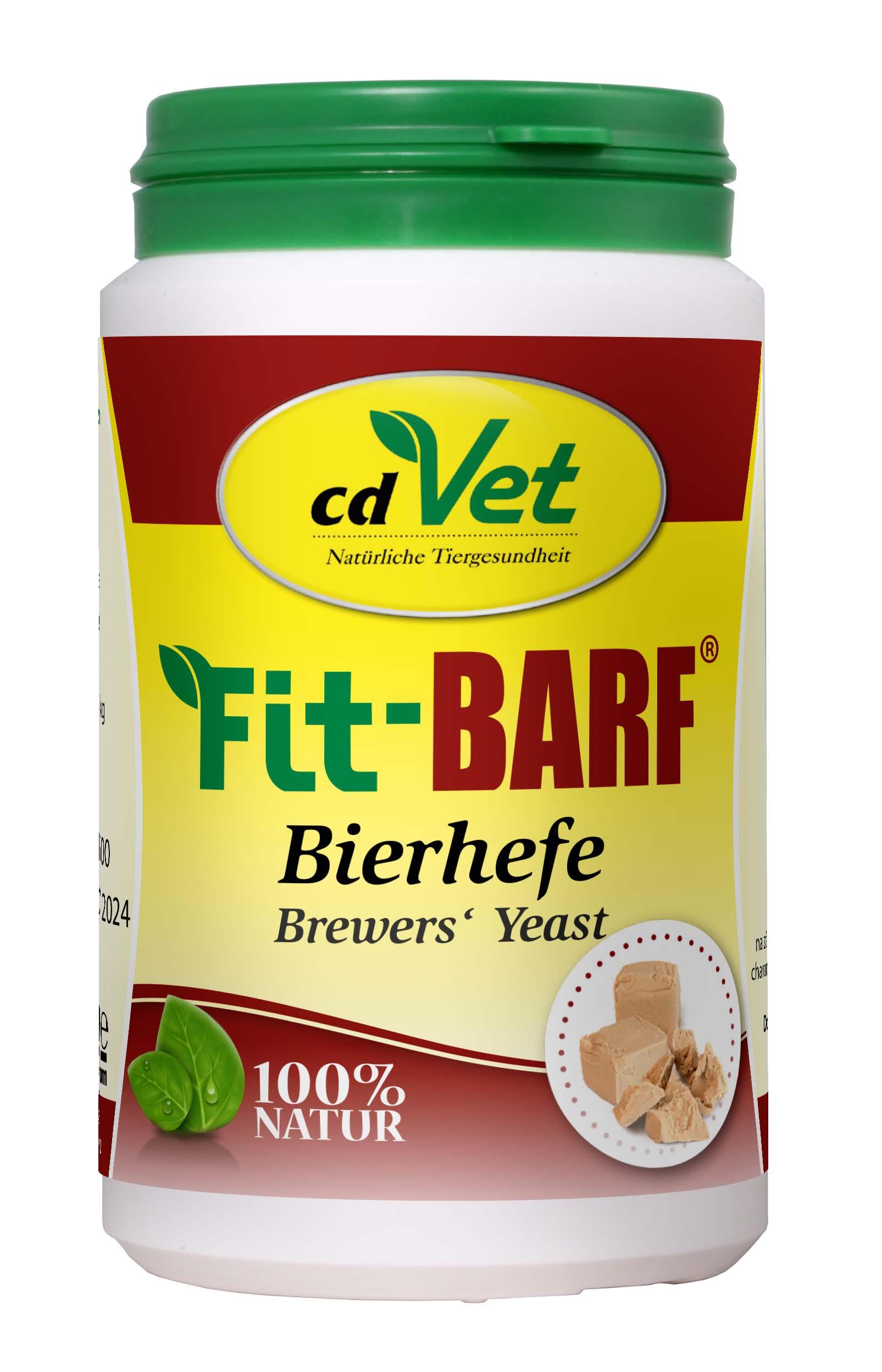
Feed material for dogs and catsFor the demand-oriented supply in raw feeding, powderBrewers‘ yeast, as the most balanced, natural source of vitamin B, whose vitamins are present in a broken down state and can be absorbed directly, is a valuable addition to the daily diet. In addition, brewers‘ yeast has a positive effect on the intestinal flora. Its content of phosphorus, potassium, magnesium, calcium, iron, zinc, copper, and manganese, as well as the trace elements cobalt, molybdenum, chromium, and selenium, provide an important contribution to demand-oriented nutrition.Composition: 100% brewers‘ yeast (Saccharomyces cerevisiae)Analytical constituents: crude protein 46%, moisture 6%Feeding recommendation: 1 g/10 kg body weight daily. 1 half tsp. corresponds to approx. ca. 1.5 g.
Content: 0.2 Kilogramm (€46.55 / 1 Kilogramm)
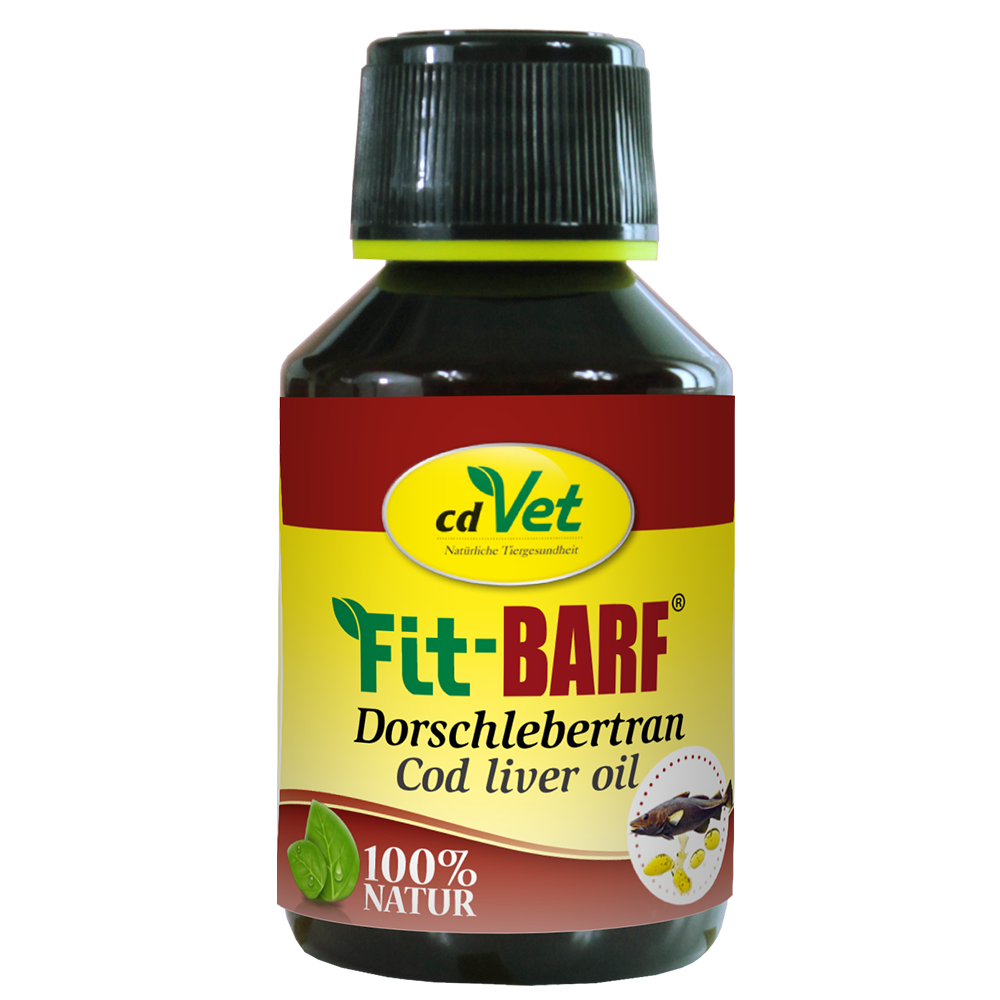
Feed material for dogs and catsNatural source of omega-3 fatty acids and vitamin DFit-BARF Cod Liver Oil is a high-value supplier for omega-3-fatty acids and vitamin D. Omega-3-fatty acid (for example linolenic acid) are polyunsaturated fatty acids, which cannot be created itselves by the body. Thus they are called essential and must be fed to the organism with the nutrition. Vitamin D is important for the builing of the bones and the regulation of the calcium balance.Composition: 100% Cod liver oil.Feeding recommendation: 1-2 x per week. Small dogs, cats: 0,5 tsp. Midsize dogs: 1 tsp. Large dogs: 1.5 tsp. For daily feeding, we recommend a period of 4-6 weeks.After opening store in cool and dark place and use it within 6 weeks!
Content: 0.1 Liter (€93.10 / 1 Liter)
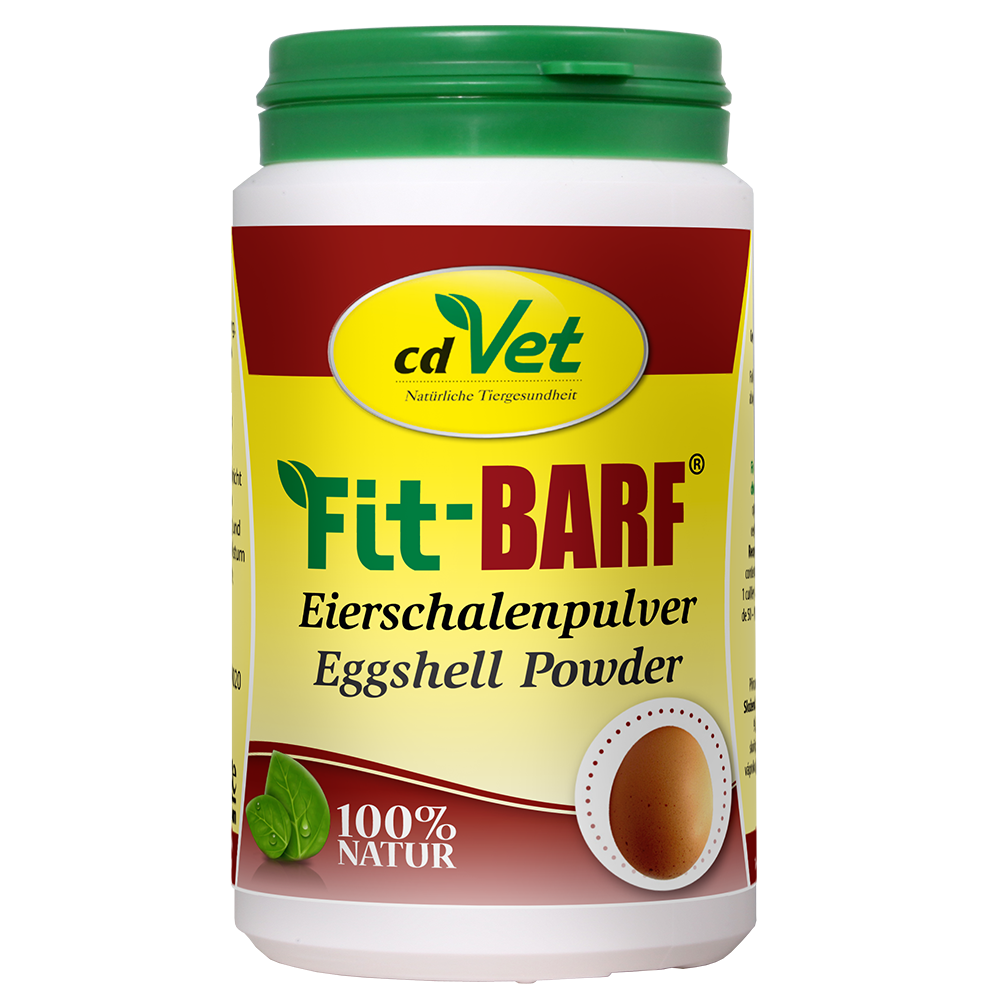
Feed material for dogs and catsNatural source of calcium for the demand-oriented supply when feeding raw meat, powderCalcium intake, in particular, plays a major role in the feeding of raw meat. This can only be achieved by feeding sufficient bone. Not every dog can or wants to eat bones, and in the case of cats, feeding whole prey (mice or chicks) is not always problem-free either.Fit-BARF Eggshell Powder is a readily utilizable animal source of calcium for daily feeding. It provides balance when feeding raw meat by balancing the high phosphorus content of the meat with its natural calcium content. Due to the fine degree of grinding, the product has a high bioavailability.neutralization of phosphorus excess with predominant meat feedingfor bone-free feedingas an extra source of calcium in times of increased demand (growth, gestation, lactation)Expert tip: For a safe supply of all important micronutrients, such as minerals, trace elements, and vitamins, we recommend feeding Fit-BARF Mineral.Composition: eggshell powder 100%Analytical constituents: crude ash 95.9%, calcium 37.1%Feeding recommendation: Mix daily into the feed. Dogs: 1.5 g/10 kg body weight. Cats: 0.75 g/5 kg body weight. 1 quarter tsp. corresponds to approx. 1.5.1 g eggshell powder contains approx. 370 mg calcium. The daily requirement of calcium is about 50-90 mg Ca/kg body weight. Gestating and lactating bitches as well as growing puppies need up to 180 mg Ca/kg body weight. If you also feed bones, we recommend reducing the amount.
Content: 0.3 Kilogramm (€31.03 / 1 Kilogramm)
